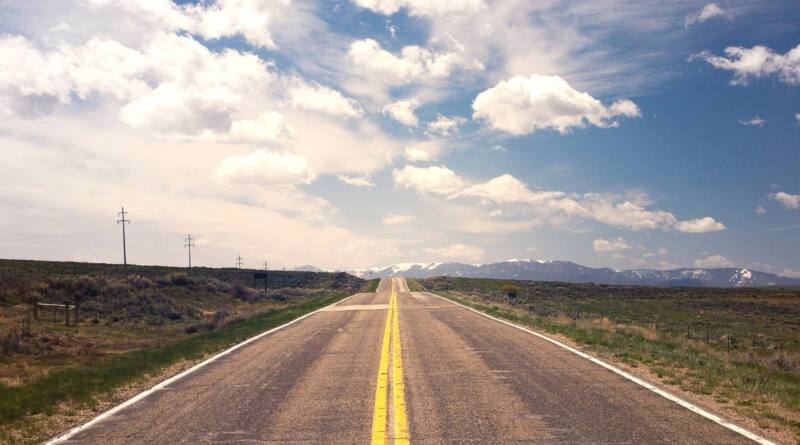The Way Back Home Seems To Be Longer. Tested
There are several reasons why getting home seems to take forever.
Travel and psychology experts explain why different parts of a journey can feel so different.
Unfortunately, the vacation is over. After soaking up the Caribbean heat, you must now confront the harsh reality of going back home. Things like “Did I remember to turn off the heater?” and “Did I pack enough pants?” probably kept you busy and thrilled on the way out. Consequently, the entire day of travel was a blur.
But the way back home is a whole other story. Due to layovers, traffic, and unappetizing rest-stop food, what was once a three-hour trip now feels like an eternity. The in-flight movies are boring, and eating Biscoff cookies is no longer exciting. You swear you’ll never leave your house again as you wonder how you ever made it through this nightmare.
Why does going one way seem so different from going the other way? That is the burning question.
How your outlook affects your estimation of trip time
Even though the saying goes something like, “It’s about the journey, not the destination,” the part of the trip there that is romanticised is usually more than the part back home.
Going on a journey to an unfamiliar place changes our frame of mind. Something thrilling, intriguing, novel, or entertaining is likely to be waiting for us. As a result, the journey becomes an integral part of the experience, making returning home seem like a letdown.
Going to and from work is similar to this. You feel rejuvenated and ready to take on the day’s many challenges when you first open your eyes. At the end of the day, though, exhaustion sets in, and all that matters is getting home as fast as possible.
If you often spend long weekends at your mountain vacation house, you can experience a similar feeling. Knowing the exact duration of the journey from experience, all you can do is contemplate the increasing weight of responsibility that will accompany your return.
In such a situation, you long to go back to your house and be with your loved ones. You’ve had more than enough.
It takes me back to when I was in school. We would anxiously await the last minutes of the day until the clock struck dismissal time. We longed for some free time and an exit from that location; the remaining minutes seemed like an eternity. Our mental processes have a major impact on how we perceive the passage of time in such scenarios.
On the other hand, we can be burdened with the post-vacation blues. “Post-Urlaubsdepression,” which translates to “depression experienced after a vacation,” is the German word for this same phenomenon.
As the saying goes, time passes quickly when you’re having fun. On the flip side, when you’re sad, time seems to drag on.
On those few occasions when getting home doesn’t seem to take forever
An informal survey on Instagram Stories revealed that 126 people believe the journey home is longer than the journey there, while 41 people hold the opposite view. Members of the second group who had the opposite experience wrote notes stating their case with conviction.
Sometimes, it’s just the length of the return trip that makes it seem shorter. Planes can cut down on journey time by taking advantage of tailwinds, especially when travelling east. The inverse of this phenomenon can also happen, cutting the outgoing journey in half.
On other occasions, though, it’s all in one’s mind. A phenomenon known as the “return trip effect” describes how our inflated expectations of travel time could make the first leg of a trip seem longer than it actually is. When we realise that outbound travel takes longer than expected, we experience a “violation of expectation” because we had anticipated that it would be shorter.
Since you have already made it through the longer route, the return trip can actually seem shorter. Plus, you’ve gotten the hang of the route by now, so it’s not as taxing on your mind.
Both the known and the unknown are crucial.
When visiting a new place for the first time, you can feel the return trip effect. For instance, the return trip may seem longer than normal if you’re going on your regular summer vacation, a route you know so well that you could traverse it blindfolded.
Making the trip home more interesting can help shorten the time it takes to get there. Here, we see the impact of time-distorting events. Enjoy the here and now rather than dwelling on the future when you know you will soon be home.
While travelling, keep your mind active by solving puzzles (but not while driving), making small talk, or planning out alternate routes.
A second option is to bring along audiobooks or podcasts to listen to on lengthy vehicle drives or to make plans to talk to friends or family while you’re on the road.
On the other hand, you may change the way you approach travel altogether. Think about using a “bell curve” itinerary when you arrange your trips. Start your vacation at a slow and steady pace, gradually increasing the intensity as you go, to avoid feeling overwhelmed. Then, as your vacation comes to a close, slowly lower the intensity.
Making preparations for things you may look forward to when you go home might also help you get back into a routine more quickly. You will be eternally grateful for every additional day that you add to your trip.





I think you have noted some very interesting details , thankyou for the post.
Glad to be one of many visitors on this awe inspiring internet site : D.
What i don’t understood is in reality how you’re not actually a lot more well-preferred than you might be right now. You are so intelligent. You already know therefore significantly when it comes to this subject, made me for my part imagine it from numerous numerous angles. Its like men and women don’t seem to be fascinated unless it’s something to do with Woman gaga! Your individual stuffs outstanding. Always care for it up!
I’ve learn some good stuff here. Definitely price bookmarking for revisiting. I surprise how much effort you place to create one of these magnificent informative website.
I love your blog.. very nice colors & theme. Did you create this website yourself? Plz reply back as I’m looking to create my own blog and would like to know wheere u got this from. thanks
Wonderful blog! Do you have any hints for aspiring writers? I’m planning to start my own website soon but I’m a little lost on everything. Would you propose starting with a free platform like WordPress or go for a paid option? There are so many options out there that I’m completely overwhelmed .. Any ideas? Kudos!
My wife and i have been now happy when Chris could complete his homework through the ideas he got when using the web site. It’s not at all simplistic to just always be freely giving tips and hints that some people have been trying to sell. And we also keep in mind we have got you to give thanks to because of that. Those illustrations you have made, the simple web site navigation, the relationships you can assist to engender – it’s many remarkable, and it’s really letting our son and our family consider that this matter is satisfying, and that is truly essential. Thanks for the whole lot!
Valuable info. Lucky me I found your website by accident, and I am shocked why this accident did not happened earlier! I bookmarked it.
Howdy very nice website!! Guy .. Excellent .. Superb .. I’ll bookmark your blog and take the feeds additionally…I am satisfied to find so many useful information right here within the submit, we need work out extra strategies on this regard, thank you for sharing. . . . . .